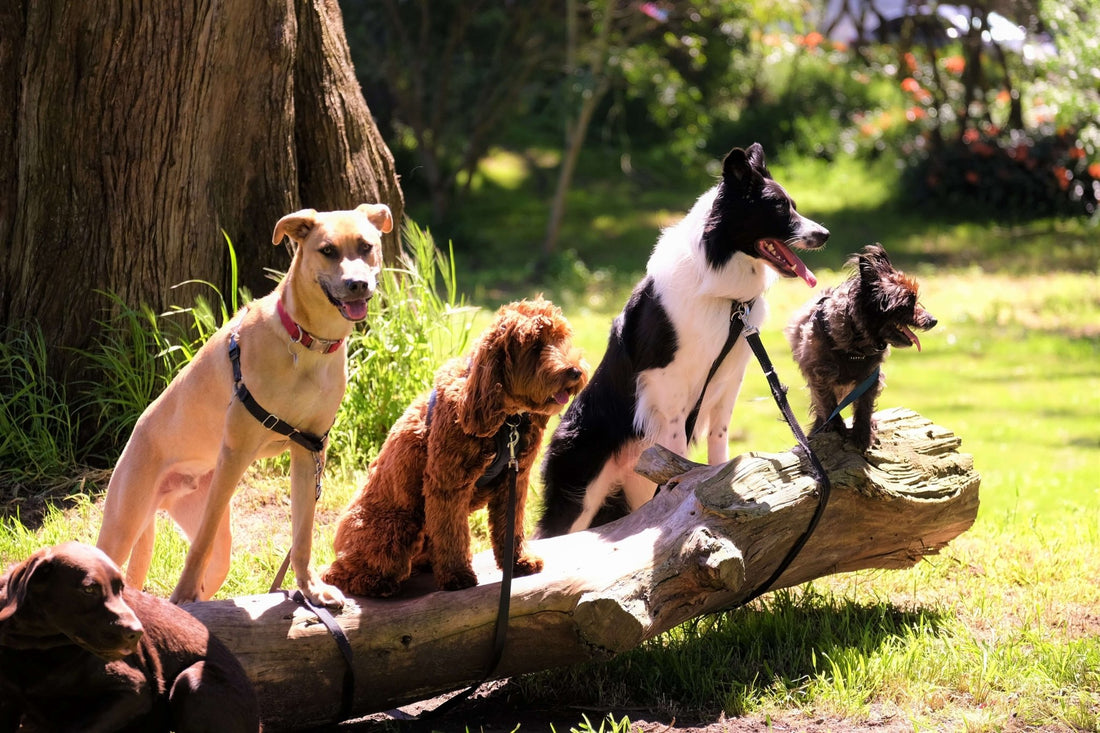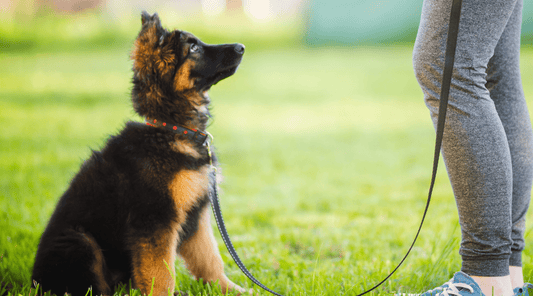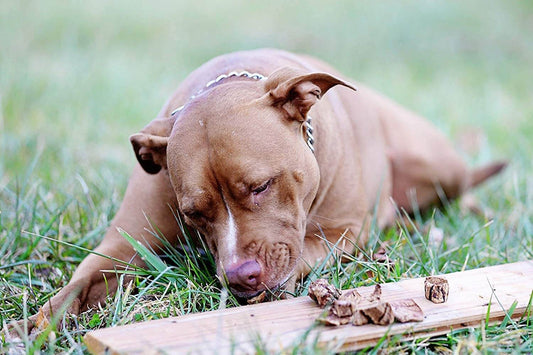How many types of collagen are there?
There are 28 types of collagen, each of which is needed for a specific body part. Now, I've seen people use this fact to overcomplicate collagen supplements. They say you have to have this kind for this benefit. But that's just marketing. And here's why.
When collagen is digested, it's broken down into amino acids. It doesn't matter what type it is. The body reassembles it.
So, here's the thing!
According to the Cleveland Clinic, the type of collagen depends on "how the molecules are assembled, the cell components that are added, and where the collagen is used in your body."
So, when I supplement my dog's collagen production, I ensure they have all the amino acids (tiny molecules) they need. And I trust their body to determine which kind of collagen they need most.
Benefits of Collagen for Dogs
1. Improves Skin and Coat Health
If you have a skincare regimen like mine, you may notice that collagen is in many human skincare products. This is because this protein is found in deeper layers of the skin and supports skin health. A review of the best studies on collagen supplementation has shown that consuming it can improve skin hydration and elasticity.
Now, these are human studies. But dog anatomy is very similar in this regard.
Collagen can improve dogs' skin and coat by providing skin elasticity and restoring moisture and softness. This is especially good for fur babies who suffer from hot spots, seasonal allergies, or other skin conditions.
2. Relieves Joint Pain
Collagen can improve joint pain and help with mobility in older dogs, allowing them to run and play for years to come. It can also slow collagen loss in younger dogs. That's important because my family loves to hike with our dogs.
Studies (I linked to above) have shown that collagen supplementation can improve bone and joint strength. These tissues are critical for stability. Lack of stability causes joints to degrade and hurt.
One of the hardest things for me to watch as a dog mom was my older dog (who's no longer with us) suffering from mobility issues. She didn't want to move. This can happen when the loss of collagen results in less support for connective tissues and joints. I didn't know back then what I know now. So, this time around with my 3 current dogs, I started each of them early on collagen for dogs.
This misery is preventable, and my pups are worth it. I know you feel the same way.
3. Supports Digestive Health
As collagen produces connective tissues out of the amino acids, it helps maintain the stomach and intestines' lining to support a healthy digestive system. This ensures my pups are absorbing nutrients and digesting food appropriately.
Studies have shown that it can also reduce inflammation and improve the gut microbiome by supporting the environment in which those probiotic microorganisms live. This may improve digestion.
4. Can Be a Tasty Treat
Collagen comes from animal sources that consist of connective tissues, like beef and fish. So, when you give them natural, grass-fed beef treats, it can boost their collagen in a delicious way. This is also beneficial for dogs who aren't big eaters since animal products are appetizing.
I prefer not to give my dogs pills and lab-created chews with many extra ingredients. That seems unnatural to me. I was delighted when I learned that one of the best ways to give dogs collagen is through grass-fed beef dog bones and treats.
Dogs love a good dog bone. It's instinct. They gnaw on bones to clean their teeth, entertain themselves, and to self-soothe. But they also love the taste of sweet, all-natural bone marrow and meaty bits on the bone.
They don't know about the health benefits.
They just know it tastes good.
In our house, we set aside several times weekly for chew time. Each of my dogs gets their dog bone for around 20 minutes. During that time, they scrape their teeth, chew, and try to get the bone marrow on with their tongue and paws. It's like an all-natural dog puzzle toy but without the microplastics.
While marrow bones are a healthy treat, dogs need a well-balanced diet. Limiting their time ensures they get the most out of their dog treats.
Plus, you can refill the dog bone with other tasty treats when that marrow is gone. I share some of my favorite bone refill recipes here.









